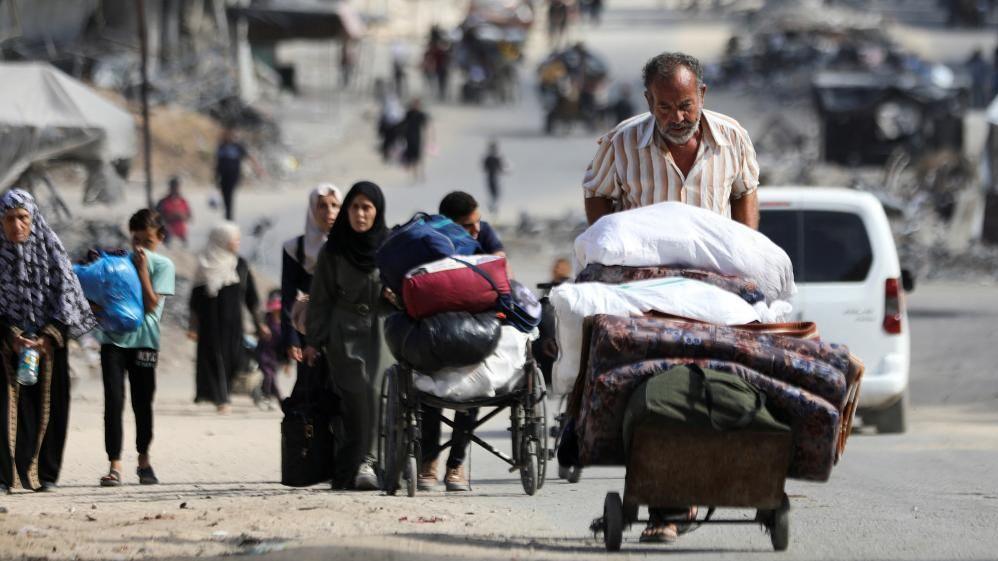Israeli attack on northern Gaza hints at retired general's 'surrender or starve' plan for war
Palestinians and aid groups suspect Israel is gradually adopting a new tactic in northern Gaza
The message, the latest in a series, said: "The IDF is operating with great force against the terrorist organisations and will continue to do so for a long time. The designated area, including the shelters located there, is considered a dangerous combat zone. The area must be evacuated immediately via Salah al-Din Road to the humanitarian area."
A map is attached with a large yellow arrow pointing from block D5 down to the south of Gaza. Salah al-Din Road is the main north-south route. The message is not promising a swift return to the places people have been living in, an area that has been pulverised by a year of repeated Israeli attacks. The heart of the message is that the IDF will be using "great force… for a long time". In other words, don’t expect to come back any time soon.
The humanitarian area designated by Israel in the message is al-Mawasi, previously an agricultural area on the coast near Rafah. It is overcrowded and no safer than many other parts of Gaza. BBC Verify has tracked at least 18 airstrikes on the area.
Hamas has sent out its own messages to the 400,000 people left in northern Gaza, an area that was once the urban heartland of the Strip with a population of 1.4m. Hamas is telling them not to move. The south, they are told, is just as dangerous. As well as that, Hamas is warning them that they will not be allowed back.
Many people appear to be staying put, despite Israeli airstrikes and artillery bombardments. When I went down to an area overlooking northern Gaza I could hear explosions and see columns of smoke rising. The intensity reminded me of the first months of the war.
THIS AND MORE UPDATES AT: https://www.bbc.co.uk/news/articles/c1e82yy0wxno

No comments:
Post a Comment